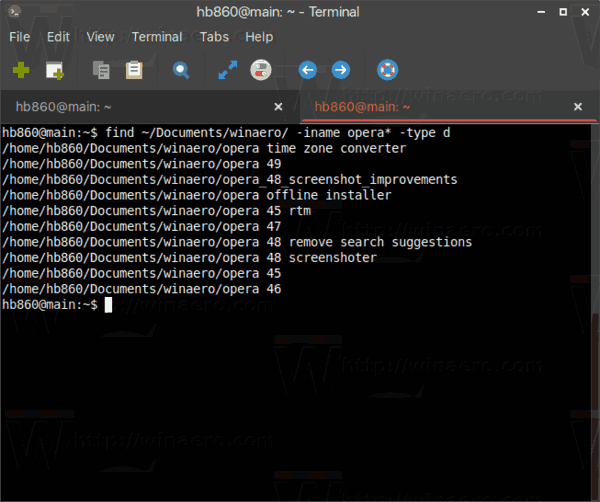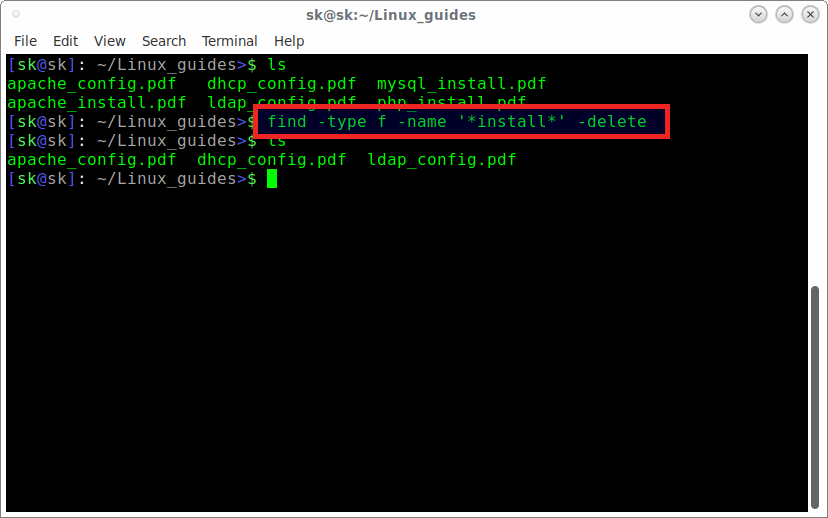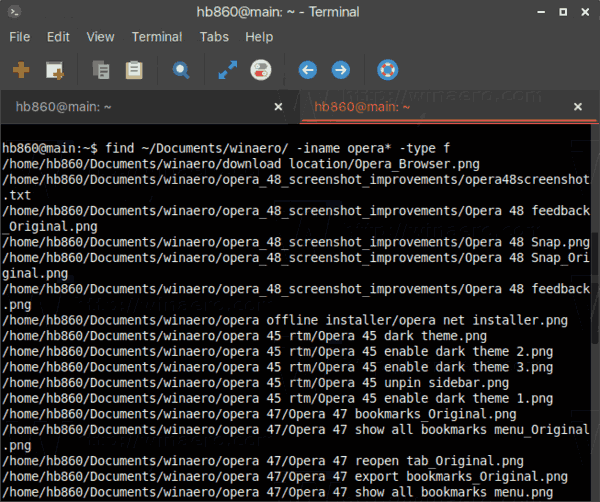


The -L, -H, and -P are optional elements used to control the handling of symbolic links. Options are special functions inserted before the search path in a find command string. This type of action is useful for removing old backup files if you substituted “*.bak” instead of “*.bmp”.

With the –delete command, you can quickly find and remove one or multiple files in one command. Locate and Delete Files with find Command This command uses the –exec command to run chmod to change the file permissions of the file filename.ext so that it can be read, written, and executed by everyone. The following command searches the actual content of files (instead of just the names of files): sudo find ~ –type f –exec grep “contents” ‘’ \ An action attribute can enhance that functionality and perform a particular task once a file is located.
#FIND ANY FILE IN LINUX HOW TO#
We have seen how to use the find command to display search results in your terminal window. Wildcards are useful if you only remember part of a filename, or are searching for files with a particular extension. In this case, the asterisk (the * sign) is used as a wildcard, meaning that it can stand in for any number of characters of any type. The system searches the current directory for regular files ( type –f ) that have an extension of. Single quotes ensure that the system interprets the request correctly.Įnter the following command to search for files with a specific extension, like. – require the use of single quotes around the name. Special characters – a wildcard, a period, a slash, etc. Standard letters and numerals are entered as a string of characters at the end of the command. Typically, the name of the file you’re looking for comes at the end of the command, after the location, options, and expressions. The find tool is going to the specified location for whatever string of characters you enter. The name attribute defines the object of your search. The system will search the current directory for any file with the name settings.txt.Ĭommands referencing the size of the searched items can be used individually to show all files larger than a certain size, smaller than a certain size, or within a defined range. This expression searches the location you’ve specified for a file with the name you type in the name field. The tilde character ~ is used to search the home directory of the current user: sudo find ~ Use Expressions with find CommandĮxpressions apply additional parameters to the find command search process.

Įnter a slash /, and your system is going to search the entire hard drive: sudo find / to search the directory you’re currently in: sudo find. In our example, the search term is filename. The find command searches everything under the /home directory (including all user directories) for your search term. If you are not certain where you want to look, you can widen the search location.įor example, if you have two user accounts and you don’t remember which one you saved a file to, you can enter: sudo find /home filename This command searches the user account in the home directory. Searching for files based on their location string can be a simple command such as: sudo find /home/user filename The find command also enables you to define search parameters, options, and locations with a high level of accuracy. The find command lists all instances of the character string you included in your search. It can be used to control the behavior and optimize the search process.


 0 kommentar(er)
0 kommentar(er)
